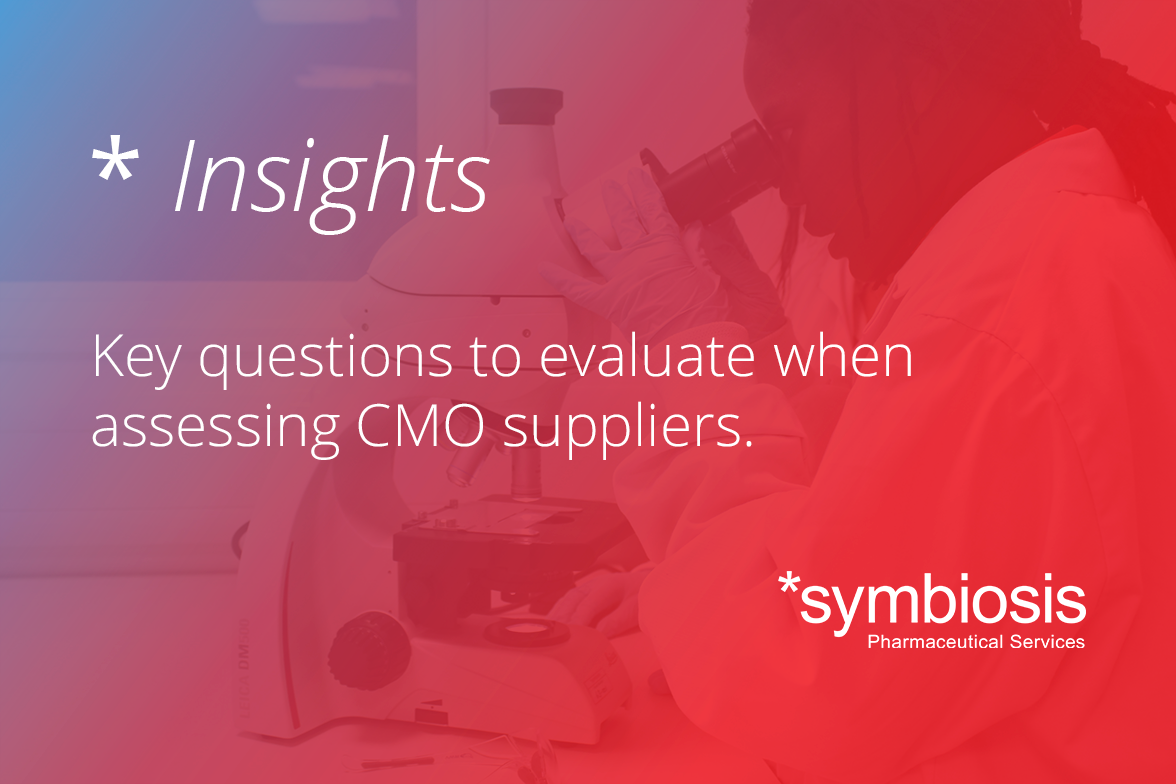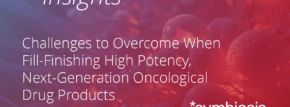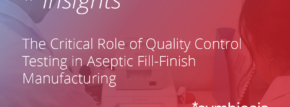Introduction
It’s estimated that even drug development companies with in-house aseptic fill finish capacity still choose to outsource 39% of their requirements. This can be attributed to cost savings, the specialist expertise required to successfully coordinate fill-finish programs and capacity/scheduling conflicts. However, selecting an appropriate partner to outsource to, can prove taxing. Aligning timelines can prove particularly challenging when securing a manufacturing timeslot can potentially take months with CMOs frequently booked far in advance.
Aligning with a CMO that shares your project goals and company values enhances communication and facilitates a more productive relationship. Any program delay is likely to result in a loss of essential capital and resources which is why effective communication between client and CMO is so critical. Laying out the responsibilities and expectations of both parties is an essential step in building a cooperative relationship to ensure each party is clear on their requirements.
Finding a CMO that matches your criteria can foster a long-term mutually beneficial partnership over multiple projects. Sourcing bids is the first step of the process but once you’ve obtained these bids, comparing each against a set framework of questions and selection criteria becomes critical to ascertain the best fit for your requirements. Consider these questions below when discussing your upcoming program with a potential CMO.
What are your licence capabilities and how might that impact our project?
Every CMO should be fully aware of the nuances within their licence of operation. Governing bodies such as the FDA or MHRA issue-specific conditions that permit or prevent certain manufacturing activities based on an understanding of the firm’s certifications and equipment. The way this is answered can give you a good indication of the CMOs understanding of your requirements and how this could be facilitated to meet regulatory standards.
How many of your projects do you deliver on time?
Understanding a CMOs history of successfully delivering programs on time is important to understand not only how efficient their processes are; but also, to open a discussion about how they deal with potential delays. Following this up by enquiring what they find causes them the most project delays can indicate whether there is a systemic efficiency issue that persists project after project.
What markets have you released to in the past?
Each CMO must have a Qualified Person or QP who is licenced to release batches within a certain geographic region. For example, the formalities of releasing to the European market will be different to those when releasing within the US. Some CMOs, like Symbiosis, have experience across markets whereas others might not be certified for particular regions.
Who is the main contact for communications, and how will communication be facilitated?
Understanding how a CMO plans to communicate the progress of your aseptic project and how this might align with your own practices is imperative. Factors like time differences, software misalignment and disjointed reporting can all slow progress. An ideal CMO should present the typical schedule that they have perfected over years of experience for similar projects. However, they must be flexible to accommodate specific reasonable requests within scope to facilitate the most efficient correspondence.
What are your capabilities and what areas are you prepared to develop?
The competency of a CMOs technical staff regarding the identification of critical processes, the characteristics of raw materials and statistical analysis will all support a bid. Understanding a potential CMOs approach to developing protocols and justification of each step is crucial. Developing methodologies with a great deal of specificity and rigour will act as an indication of CMO competency.
What information do they require prior to the contract?
CMOs will request a variety of information once a non-disclosure agreement has been signed. For example, drug product specifications, testing requirements, whether vials should be prepared for clinical labelling and packaging etc. Having a clear understanding of who will do the final release of a batch and what responsibilities fall on the CMO should enable the partner to quote accurately and give an indication of their communication style.
How many years of experience do they have?
CMOs with many years of experience, like Symbiosis, benefit from the continued development of internal systems, laboratory protocols and specialist personnel. Given the vast knowledge and expertise required to successfully perform aseptic fill finishing, an experienced CMO has had the opportunity to perfect and optimise systems. With a large proportion of clinical trials facing delays, selecting an experienced CMO should give clients added confidence.
Can you provide storage or transport?
It’s typical for a CMO to include a storage or transport fee within a proposal should it be within their capabilities. Should clients have a particular courier or freight solution it could be valuable to ensure compatibility for a smooth transfer.
Conclusion
An efficient working relationship between client and CMO provides the best possible chance of batches of drug product being delivered to a high standard, on time and crucially within budget. Not all CMOs have comparable capabilities or experience which is why it’s of the utmost importance to ascertain whether a prospective supplier has the prerequisite knowledge. Ultimately, the fill-finish process is there to safeguard the patients that will receive the drug product, which is why it’s essential that biotechnology and pharmaceutical drug developers are confident in their chosen CMO to deliver.



